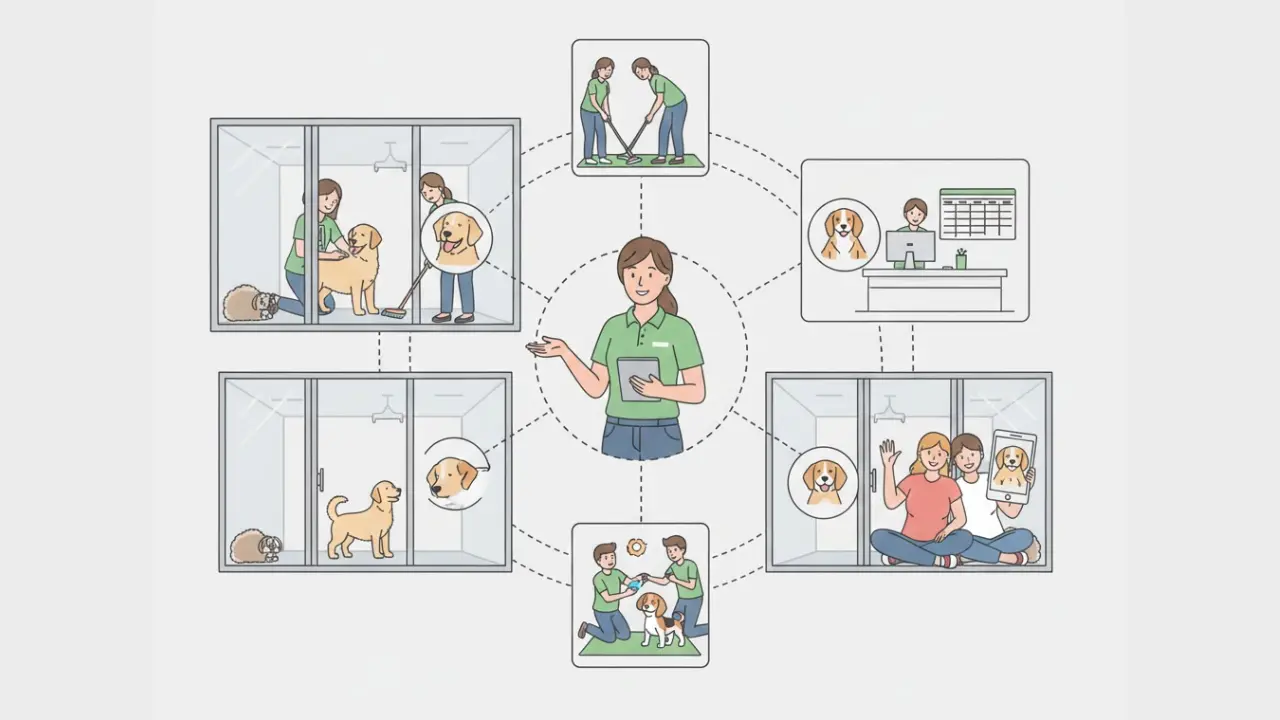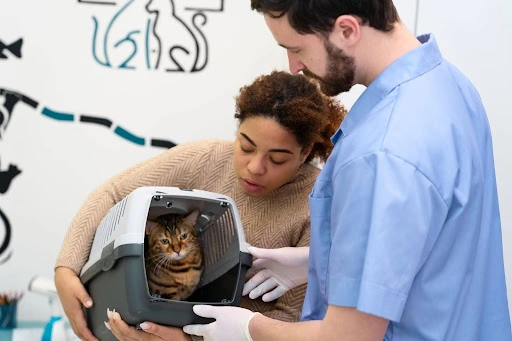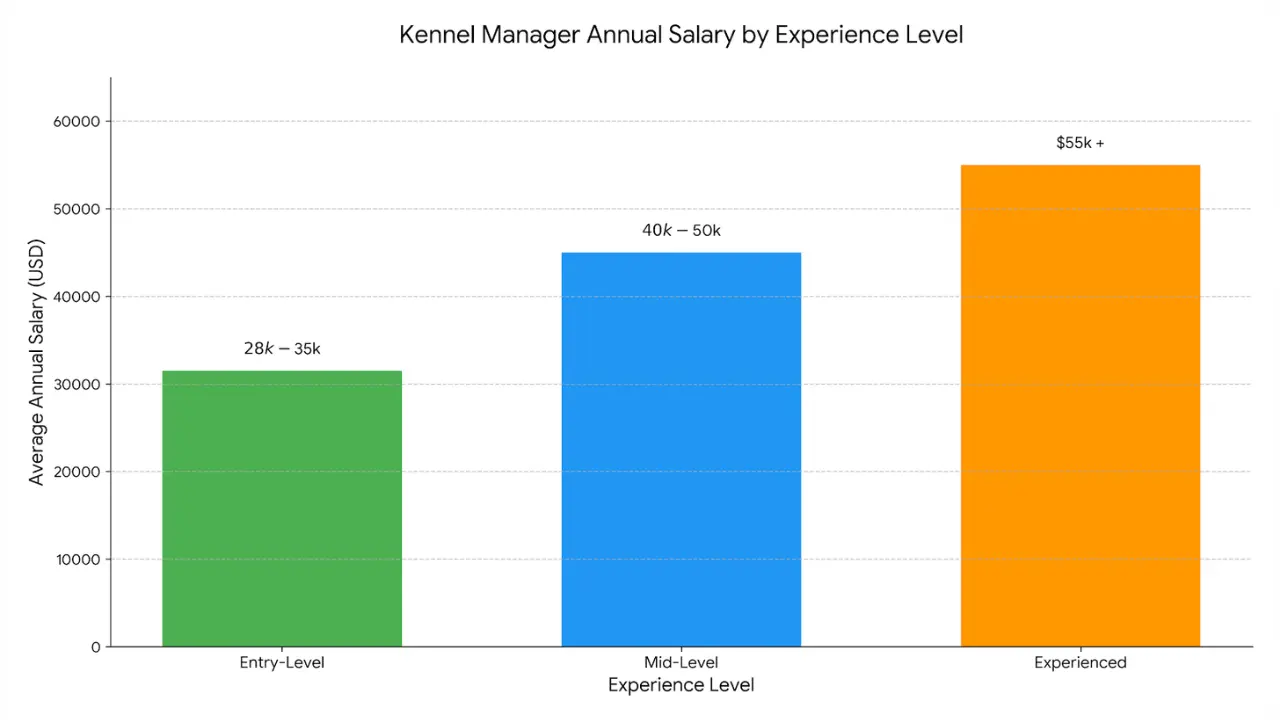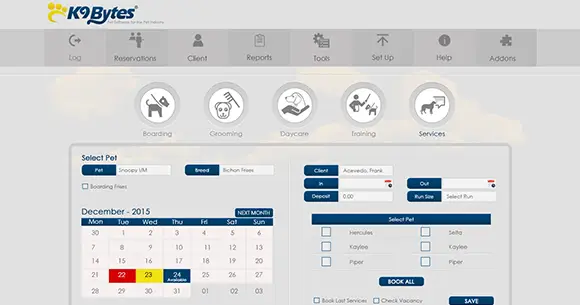A kennel manager is the pillar of any successful pet boarding facility, ensuring smooth daily operations and top-notch pet care. From overseeing pet health, feeding, and exercise to leading staff training and scheduling, their role is incredibly diverse. They manage customer communications, facility upkeep, and business operations, including billing, while also contributing to marketing and growth strategies. Essential skills include strong leadership, clear communication, organization, and a deep understanding of animal behavior. While formal degrees aren’t always mandatory, relevant experience and certifications are highly valued. Salaries typically range from $28,000 for entry-level roles to over $55,000 for experienced professionals, varying with location and facility size. Ultimately, a skilled kennel manager is crucial for creating a safe and happy environment for pets and driving business success.

Imagine a Monday morning at a pet boarding facility where dogs are barking with excitement. You can see that the kennels are cleaned, and pet owners are waiting to drop off their pets. Amidst the chaos stands the kennel manager, who is responsible for the operations and ensures everything runs smoothly. Having a manager in your pet boarding business is the heart of your operations. This person ensures that every pet is safe and keeps every staff member informed about their responsibilities, making every pet parent feel confident that their pets are being well cared for.
In this blog, let’s explore what a kennel manager does, especially in today’s growing pet care industry, and learn more about their skills and roles in pet care.
What Is a Kennel Manager?
A kennel manager is an individual who oversees a Pet Kennel business. They are the ones who manage the operations, from customer service to pet care supervision. You can think of them as the bridge between staff, pet owners, and the animals. Managers for the kennel business ensure that operations run smoothly, ensuring pets are happy and healthy while maintaining a clean and organized environment.
In addition, a dog kennel manager’s job includes managing bookings, training staff, maintaining pet records, and ensuring the facility meets safety standards for operations. In short, they combine pet care supervision with leadership and knowledge of the pet boarding facility business.
Key Responsibilities of a Manager for Kennel Businesses

A kennel manager plays a vital role in making daily kennel operations run efficiently. Every task they handle, from customer communication to pet care, helps maintain a safe, happy, and efficient pet boarding facility.
Let’s look at the core responsibilities as managers for pet kennel businesses:
Pet Care Oversight: One of the primary duties of a kennel manager is to ensure the health of the pets, maintaining cleanliness and comfort. They monitor the feeding schedules and oversee the grooming and exercise routines. This level of pet care supervision helps provide a stress-free environment for the pets while they are away.
Staff Supervision & Training: They are responsible for hiring, training, and scheduling staff. They guide their team through hygiene. Kennel managers also provide ongoing staff training to maintain the service quality of their kennels. This ensures that every staff member understands the importance of their role in pet care.
Customer Communication: One of the key roles of these managers is to communicate with pet owners. They update clients about their pets’ well-being, answering their queries and resolving any problems they may have. Being compassionate and clear is one of the parts of every pet business manager’s job description.
Facility Management: They also need to oversee the daily cleaning schedules, ensure the environment is suitable for pets, and monitor the supply labels. This part is crucial for effective kennel business management, ensuring operations are efficient and creating a comfortable space for pets.
Business Operations: In addition to pet care, the kennel managers also oversee business operations. They manage billing, inventory, and oversee the schedules. That’s why having a reliable Pet Kennel software saves them time and improves the accuracy of results.
Marketing & Growth: Many managers need to plan promotions, manage the social media pages, and help decide on strategies from the Dog Kennel Business plan to grow its customer base. It is a combination of marketing and pet care. Thus, it strengthens the reputation of the pet business and its success.
Essential Skills Every Kennel Manager Should Have

So what does a kennel manager do? To be successful in this career path, one often requires strong kennel management skills. Well, yes, leadership is the primary key. As managers, you need to stay motivated and ensure everyone works toward the same goal. Communication is also necessary, as it requires clear and friendly interaction that is built on trust with both pet owners and staff.
Organizational skills and time management are also essential for balancing daily tasks and solving problems. This can include health concerns or customer complaints. A great dog kennel manager needs to have prior knowledge of animal behavior and safety procedures.
Ultimately, a passion for pet care, combined with empathy and reliability, makes a kennel manager stand out. These kennel manager skills will determine whether the care provided is influenced towards the pets and the business itself.
Education and Training Requirements
While a degree is not required for this job, having a relevant education, such as animal science or a related field, would be beneficial. Many successful managers began their careers in entry-level positions in the pet kennel industry before advancing to managerial roles. Experience in pet care supervision, veterinary assistance, and pet grooming is a valuable skill for this job.
Training in kennel business management also helps you handle the budgets, scheduling, and customer service. Getting certifications in staff training for kennels, animal behavior, and first aid can show professionalism and experience.
Ongoing learning is also valuable, such as attending workshops and programs that ensure kennel managers stay up to date with information about safety standards and technology applicable to kennel operations.
How Much Does a Kennel Manager Earn?

Now, let’s discuss the salary of a kennel manager. This often varies depending on the location, experience, and size of the business. Being an entry-level manager can let you earn $28,000 to $35,000 per year. Meanwhile, a mid-level manager can be paid around $40,000 to $50,000. Experienced professionals with years of experience in extensive facilities and locations can make $55,000 or more annually.
The more you improve your kennel manager salary, skills, and experience, the more likely it is that you can boost your earnings. Those people who are skilled in kennel business management, marketing, and leadership tend to earn higher salaries.
Why Are Managers for Kennel Businesses Vital to Success

Kennel managers are more than just your typical pet caretakers. They are the backbone of pet facility businesses. Without their leadership, even the best pet boarding facility can struggle. They ensure everything runs smoothly, from client relationships and marketing strategy to feeding routines. Hiring a skilled kennel manager can help businesses create a safe and efficient environment that enhances sales.
Additionally, they oversee pet care and team leadership, which enhances kennel operations, enabling business owners to save time and operate more cost-effectively. When supported by Pet and Dog Business Software and proper staff training, a manager can be an excellent asset for long-term business growth.
Conclusion
Being a great kennel manager is more than just a job. It is a role filled with meaning that brings care and structure to every pet boarding facility. Each day presents a new opportunity to ensure pets feel safe with you or to help a team member expand their role. Thriving to have thoughtful kennel operations and compassion as a kennel manager creates safe business operations.
If you have ever dreamed of working with animals and developing valuable skills as a kennel manager, this career offers purpose and stability. This path combines learning and leadership, centered on providing pets with the comfort they need and deserve.
FAQs About Kennel Manager
Q: What's the usual career path to become a kennel manager?
A: Most start as kennel technicians or vet assistants, gaining experience, then progress to supervisors before becoming managers. Some move into multi-facility roles or ownership.
Q: What software helps kennel managers with their work?
A: Specialized software is standard for bookings, scheduling, client records, billing, and staff communication.
Q: How does kennel size change a manager's job?
A: Smaller kennels mean more hands-on pet care and broader duties for managers. Larger facilities focus more on staff leadership and strategic oversight.
Q: What tough daily challenges do kennel managers face?
A: Managing challenging pet behavior, emergency health situations, complex customer issues, staff conflicts, and staying compliant with animal welfare rules.
Q: Which certifications are best for aspiring kennel managers?
A: Certifications in animal first aid/CPR, dog behavior, and general pet care services (from recognized organizations) are highly valuable.



